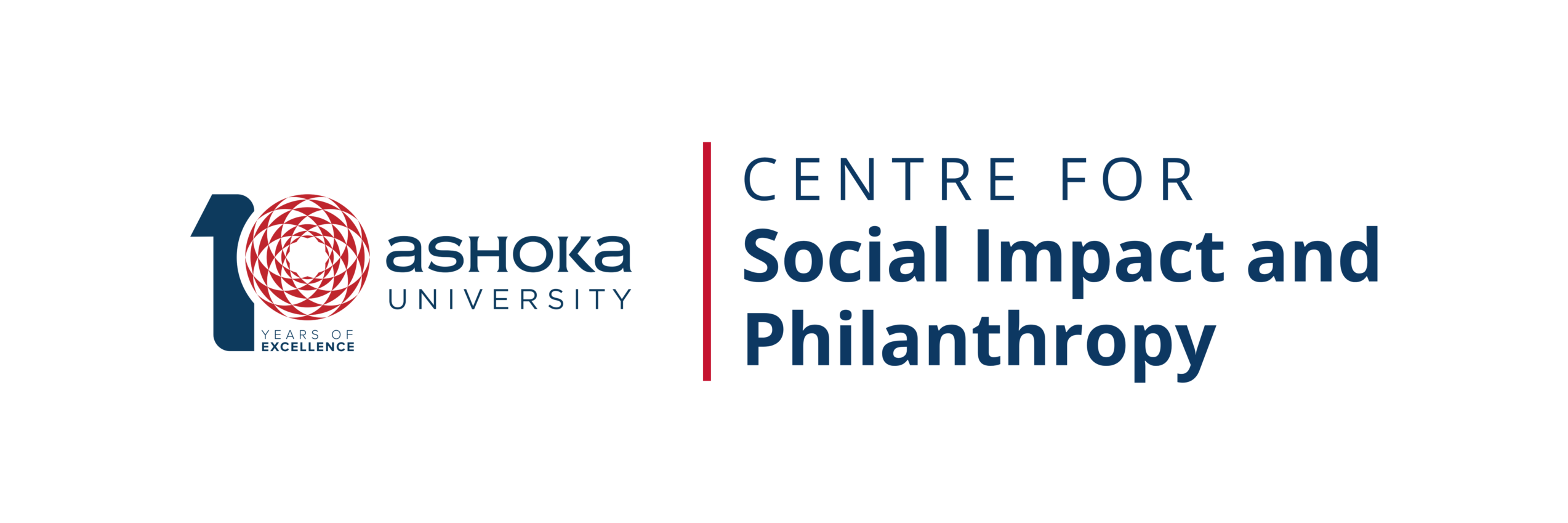CSIP Fellowship: Towards data-driven understanding of philanthropy
:By Shaivya Verma


 The concept of ‘giving’ is an integral part of many cultures and religions. For instance, the Jewish use tzedakah to signify charity, the term caritas has been used in Christian theology, zakat is important according to the Quran, and dana is important in Hindu, Buddhist, and Jain scriptures. ‘Giving’ in India can be connected to the ethos of ‘Vasudhaiva Kutumbakam’ aka ‘the world is one family’. And, the practise of cultivating generosity has therefore been important to Indian family ethos, across religions and cultures.
The concept of ‘giving’ is an integral part of many cultures and religions. For instance, the Jewish use tzedakah to signify charity, the term caritas has been used in Christian theology, zakat is important according to the Quran, and dana is important in Hindu, Buddhist, and Jain scriptures. ‘Giving’ in India can be connected to the ethos of ‘Vasudhaiva Kutumbakam’ aka ‘the world is one family’. And, the practise of cultivating generosity has therefore been important to Indian family ethos, across religions and cultures.
This significance of ‘giving’ became even clearer to us because of the tremendous work done by the 2021 research fellows at CSIP as they explored different types of indigenous and structured ‘giving’ in different religious and cultural communities. Other interesting themes that emerged from the 2021 fellowship were philanthropy in the crafts sector during the pandemic; philanthropy for the ocean, and for equitable and inclusive development; family firm philanthropy; and philanthropy by social service organisations (Rotary, Inner Wheel, and Lions).
Encouraged by the diversity of last year’s cohort, we were also intrigued about the background of the applicants for the 2022 fellowship. After completion of the selection process by an external jury, we analysed the applicants’ backgrounds. Most of the applicants were affiliated with academic institutes (~39%) which itself was a varied group. Many of them were enrolled in postgraduate programmes and few were teaching in temporary capacities. We also had a good representation from practitioners, civil society and professional/consultants in the development and philanthropic sector. It was interesting to know that an overwhelming number of applicants were women.
A large number of applications were focused on COVID and maybe this had to do with the sector’s immediate experience of the pandemic. Other focus areas of research included gender, various kinds of giving, mapping philanthropic funding, followed by climate/environment, education, health and community giving. CSIP also received applications from niche areas such as begging, trafficking, Gandhian philosophy, freecycling, water sanitation, cow protection, and celebrity giving.
Even though most researchers were based in cities (primarily Mumbai and Delhi), the proposed geographic areas for the study were more diverse and covered most parts of India.
The selection process was fairly based on the quality of the proposals, research idea, methodology and criticality of the topic. The selected fellows are from diverse backgrounds. The diversity also brings a variety of perspectives and expands our understanding in terms of how people donate in different cultures and to different philanthropic areas. These studies also contribute to our limited understanding of the philanthropic sector by highlighting underserved areas and the opportunities and challenges philanthropy faces.
Mentoring a diverse group of fellows has been a learning experience for the research team as well. Not only did we gain an understanding of the specific form and nature of ‘giving that the fellows explored but also the specific needs of each individual fellow in terms of writing styles, problem-solving, and research methodologies.
The experience of interaction with the 2021 cohort as well their research was an eye-opener to the diverse kinds of giving that exist in India. We are very excited and look forward tremendously to what we can learn from the 2022 fellowship.
To read 2021 Fellows papers, please visit this link.


